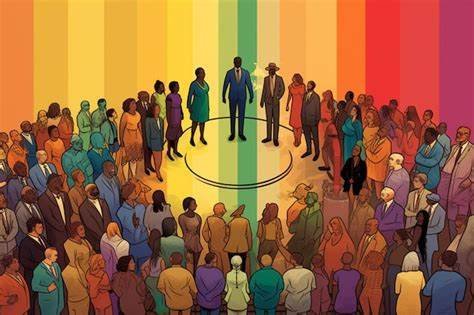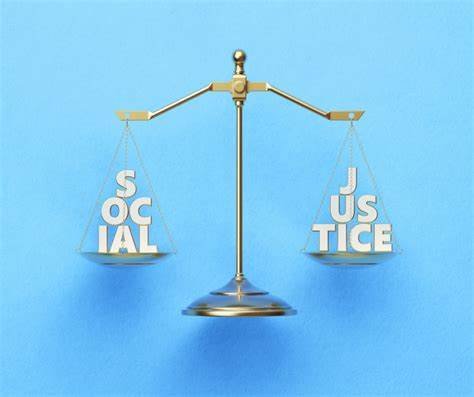Social justice plays a critical role in shaping public policy by ensuring that laws and regulations promote equality, fairness, and human rights. Public policy, which includes decisions made by governments and other institutions, can significantly influence the lives of individuals and communities. When social justice is at the heart of policy decisions, it ensures that marginalized groups are protected, and societal structures are adjusted to reflect the values of fairness and opportunity. This article explores the ways in which social justice impacts public policy and the importance of integrating these principles into decision-making processes.
What is Social Justice?
Social justice refers to the idea that all individuals should have equal access to resources, opportunities, and protections regardless of their race, gender, socioeconomic status, sexual orientation, or other characteristics. It aims to address inequalities and ensure that every person has the right to live with dignity and fairness. Social justice encompasses a wide range of issues, from economic equality to healthcare access, education, and human rights.
The Role of Social Justice in Shaping Public Policy
1. Promoting Equality and Fairness
Social justice advocates for policies that level the playing field and give marginalized groups the tools to succeed. This includes policies aimed at eliminating discrimination, such as affirmative action or equal pay legislation, and addressing historical inequalities, like reparations or land redistribution.
- Example: Policies such as the Civil Rights Act of 1964 in the United States aimed to eliminate segregation and employment discrimination, providing more equal opportunities for people of all races.
2. Addressing Economic Inequality
Economic disparity is a central issue in social justice, and public policies often seek to bridge the wealth gap by addressing systemic inequality. Social justice-driven policies aim to provide everyone with access to basic needs, such as affordable housing, healthcare, and education, regardless of their financial background.
- Example: Universal healthcare policies, like the Affordable Care Act (ACA) in the U.S., aim to provide low-income individuals and families with affordable medical care, ensuring that access to healthcare is not determined by wealth.
3. Protecting Human Rights and Civil Liberties
Social justice calls for the protection of human rights and the eradication of practices that harm or marginalize individuals. Public policies rooted in social justice promote human dignity by addressing issues like racism, sexism, and discrimination based on sexual orientation or gender identity.
- Example: Marriage equality policies, which allow same-sex couples the same legal rights as heterosexual couples, are a direct result of social justice efforts advocating for LGBTQ+ rights.
4. Creating Social Safety Nets
Social safety nets such as unemployment benefits, food assistance programs, and child support laws are designed to protect vulnerable groups in society. Policies grounded in social justice ensure that everyone has access to the support they need to live a stable and fulfilling life, particularly during times of hardship.
- Example: Social welfare programs like food stamps (SNAP) or child tax credits help ensure that low-income families have access to essential resources, supporting economic security.
5. Encouraging Diversity and Inclusion
Diversity and inclusion are key pillars of social justice, and public policies often focus on ensuring that all people, regardless of their background, are represented and have an equal voice in decision-making processes. By promoting inclusion, governments can create more equitable environments where individuals from diverse communities can thrive.
- Example: Diversity initiatives in the workplace, such as quotas or diversity training programs, aim to create more inclusive work environments, ensuring that people from underrepresented groups have opportunities for advancement.

Challenges in Implementing Social Justice in Public Policy
While the goals of social justice are clear, implementing them in public policy can be challenging. These challenges often include:
- Political Resistance: Policies aimed at social justice can face significant opposition from those who are resistant to change or who benefit from the existing power structures.
- Resource Constraints: Allocating resources to address social inequality can be difficult, particularly in regions with limited budgets.
- Systemic Barriers: Deep-rooted cultural, racial, or economic biases may hinder the successful implementation of social justice policies, making it harder to create lasting change.
The Impact of Social Justice Policies on Society
When social justice principles are integrated into public policy, the results can be profound:
- Reduced Inequality: Addressing issues like income inequality, racial disparities, and educational gaps can create a more equal society where everyone has a fair shot at success.
- Improved Social Cohesion: When people feel that they are treated fairly and have equal opportunities, social cohesion improves, leading to a more harmonious and stable society.
- Stronger Economic Growth: Policies that promote equality often lead to higher economic productivity by ensuring that all members of society can contribute to the economy.
Conclusion
Social justice has a vital role in shaping public policy, ensuring that laws and regulations promote fairness, equality, and human dignity. By addressing economic disparities, promoting human rights, and ensuring equal opportunities for all, social justice-driven policies can create a more equitable society. However, implementing such policies is not without challenges, as they often face political resistance and systemic barriers. Nevertheless, the benefits of social justice in public policy—reduced inequality, improved social cohesion, and stronger economic growth—highlight the importance of prioritizing social justice in policymaking.




